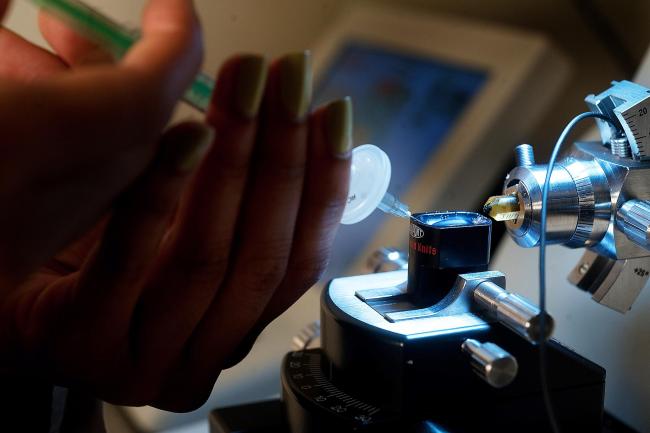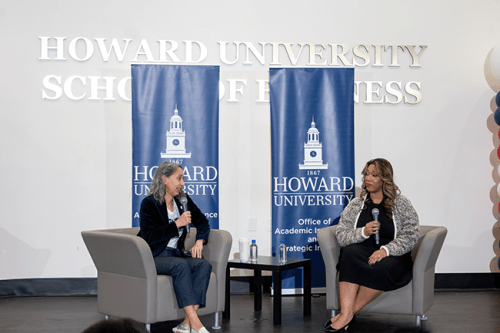WASHINGTON - Howard University and Johns Hopkins University are teaming up to develop new medical devices to diagnose, treat, and manage neurological disorders. The partnership’s new NeuroTech Harbor technology is supported by a $5M investment over 5 years by the National Institutes of Health (NIH).
Experts at the new NeuroTech Harbor (NTH) technology accelerator will partner with teams of top innovators from around the globe to supercharge the development of medical devices that improve diagnosis, treatment, and management of these conditions while also ensuring those technologies are accessible to all communities. Howard University will lead outreach efforts to build pathways for aspiring women and underrepresented minority innovators at a national scale.
“Howard University is excited to collaborate with Johns Hopkins University on the NeuroTech Harbor accelerator. This partnership will bring together global teams of diverse experts to provide innovative solutions for neurological conditions, which impact our communities,” said Bruce Jones, Ph.D., professor and vice president for the Office of Research at Howard University. “This grant supports a key pillar in the Howard Forward strategic plan to Inspire New Knowledge, while increasing the diversity of research and innovation. We look forward to the growth and success of this collaborative partnership.”
More than 1 billion people worldwide suffer from these disorders, which range from Alzheimer’s and Parkinson’s disease to chronic pain, addiction, mental health, multiple sclerosis, stroke, migraines, brain and nerve injuries, and more.
Funded from NIH’s Blueprint MedTech program through grant U54EB033664, NTH is a biotechnology incubator which aims to accelerate the development of cutting-edge medical devices to diagnose and treat nervous system disorders. NIH selected NTH as one of two incubator hubs to foster innovative medical products, to prepare them for first-in-human demonstrations.
“Disorders of the nervous system constitute a true public health crisis and are one of the leading causes of disability and death worldwide,” said Sri Sarma, NTH executive director and associate professor of biomedical engineering at Johns Hopkins University. “NeuroTech Harbor’s approach will overcome those barriers, helping fast track the development of real-world solutions to conditions that affect one in six people around the globe.”
NTH will connect innovators to engineers and specialists with deep and broad biomedical engineering and commercialization expertise by leveraging access to state-of-the-art facilities like the Johns Hopkins University Applied Physics Laboratory, as well as NTH’s established global networks of angel investors and venture capitalists. NTH’s consultant network of world-renowned neurotech experts represents diverse backgrounds and experiences and includes clinicians, scientists, technologists, commercialization experts, and patient advocates. In addition, NTH is planning education and mentorship of teams in business development, translation, and project management to help ensure their success.
###
About Howard University
Founded in 1867, Howard University is a private, research university that is comprised of 14 schools and colleges. Students pursue more than 140 programs of study leading to undergraduate, graduate and professional degrees. The University operates with a commitment to Excellence in Truth and Service and has produced one Schwarzman Scholar, three Marshall Scholars, four Rhodes Scholars, 12 Truman Scholars, 25 Pickering Fellows and more than 165 Fulbright recipients. Howard also produces more on-campus African American Ph.D. recipients than any other university in the United States. For more information on Howard University, visit www.howard.edu.
Media Contact: Sholnn Freeman; sholnn.freeman@howard.edu





